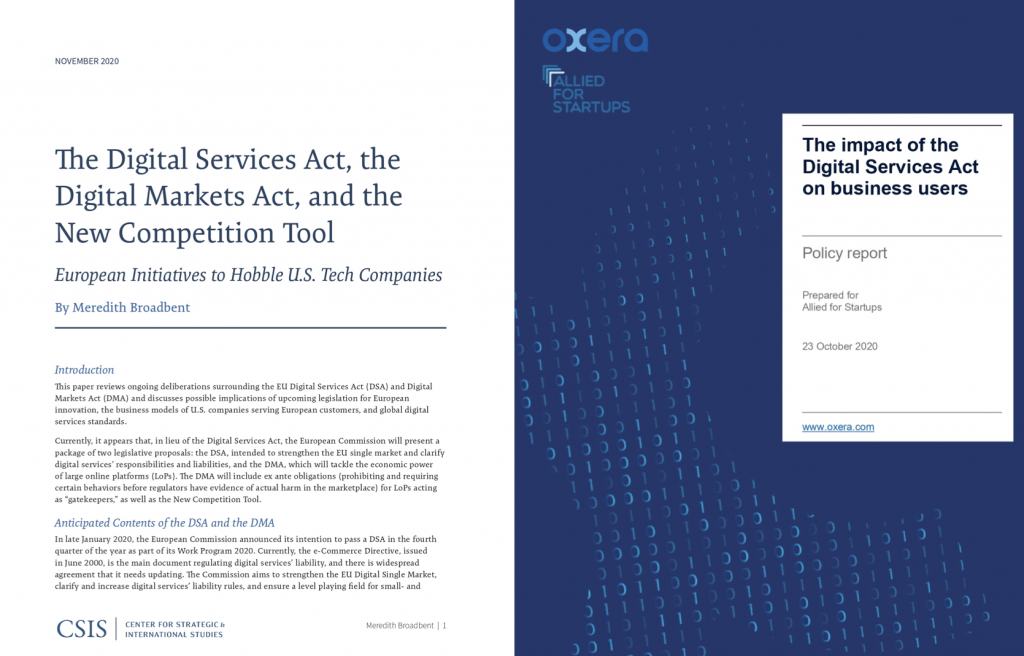
Analysis: the Portuguese Presidency of the European Council and the (new) digital legislation
Portugal takes over the rotating presidency of the Council of the European Union next January with several challenges and opportunities, capable of making this six-month term a memorable season. Especially when it comes to common market’s digital legislation, the bustle is already guaranteed: it’s the temporary Portuguese leadership that will deal with the first developments towards the implementation of new rules replacing others created 20 years ago – that is, a near-eternity for the tech cluster. Formally presented this Tuesday (15), the Digital Services Act (DSA) intends to introduce new rules in areas ranging from content moderation, online advertising and algorithms configuration transparency, while the Digital Markets Act (DMA) intends to anticipate potential illegal practices and provide an audit tool for companies that have more than 10% of the market within the common economic space. Both propositions can be checked on the European Council’s website official announcement.

DSA announcement landing page
It has been known since before her inauguration, that the current President of the European Commission, Ursula von der Leyen, wishes to modernize the digital legislation of the common market. Something that was crystal clear, for example, in her recent opening speech at Web Summit 2020 – a definitely global event, but whose opening narrative was decisively European. Ambitiously, the German politician opened the world’s largest technological meeting by recognizing there are still many obstacles to digital entrepreneurship in the European Union and many startups end up leaving the European space to ensure their growth. For this reason, she reiterated three fundamentals of change that, in her understanding, will make the EU the global leader in digital excellence in the “20s” that are coming. Such pillars affirm that the (European) practices and values of the offline world must also be respected online; that companies must have a unique set of fundamental digital rules across the European Union; and that they must have equal conditions and opportunities.
All of these principles are reflected in the brand-new proposed legislation. DSA aims to strengthen the EU’s single market, facilitate the expansion of startups and scale-ups through unifying rules in the economic space and clarify the responsibilities and obligations of digital services, while DMA will directly address the economic power of major online platforms with the intention of restraining (and demanding) certain behaviours, even before regulators have evidence of real damage to the market.
The proposals point to unquestionable benefits for society and democracy in Europe (reduction of fake news, illegal products and services and hate speech), but it is too early to know what their systemic implications will be on people’s daily lives and, above all, on businesses’. These are epic challenges in political, legal and geocorporate terms, capable of generating an impact both in large technological companies and in early-stage startups.
Although the European Commissioner for Competition, Margrethe Vestager, stated (also) at the Web Summit 2020 that this debate “is not about where you come from, but about what you do and the role you have in the market”, the potentially geopolitical discussion it’s already set. The Center for Strategic & International Studies (CSIS), positioned at the top of the North American ranking of the Global Go To Think Tank Index, published last November the study “Digital Services Act, Digital Markets Act and the new competition tool – European initiatives to face US technology companies“, whose approach highlights how the different international perspectives and interests on the subject will be heard with a huge echo while Portugal leads the temporary presidency of the European Council.

CSIS (left) and Oxera / Allied for Startups (right) studies
On the other hand, the study “The Impact of the Digital Services Act on business users”, released last October by the British consultant company Oxera in partnership with the international association Allied for Startups, suggests another angle: that the emerging digital entrepreneurs in Europe have a vision on defending their autonomy and free initiative similar to that of North American big techs. After collecting the perspective of 1,000 startup & SME founders from the travel and tourism, gig economy and creative industry segments in Germany, Bulgaria, Ireland and Spain, the study concludes that DSA can achieve positive results if 1) it continues to limit the platforms’ direct responsibility for content and products made available by third parties; 2) it allows platforms to take their own voluntary actions to detect harmful or illegal content; 3) it elaborates obligations with known penalties, in order to increase customer confidence and provide legal certainty; 4) it expands the consistency of rules applied across the EU; 5) it avoids overloading discouraging information to users, such as detailed verification of product lists, qualifications or content copyrights; 6) it doesn’t prescribe governance solutions that prevent platforms from implementing scalable technical solutions, such as artificial intelligence tools; and 7) it avoids rules based on the size of each platform, such as numbers of users or the value of facilitated transactions.
These are perspectives both legitimate and potentially fracturing when facing the Council of the EU intentions, ready to feed a lively debate right at the moment of Portugal’s protagonism in its rotating presidency. So the question emerges: how will the well-known Portuguese pro-innovation and digital transformation position, expressed so favourably over the past few years, be used as a parameter in the legislative developments of the Digital Services Act and the Digital Markets Act? A theme that we’ll closely follow-up throughout 2021.
* Beta-i’s Co-Founder, Communication & Knowledge Principal


